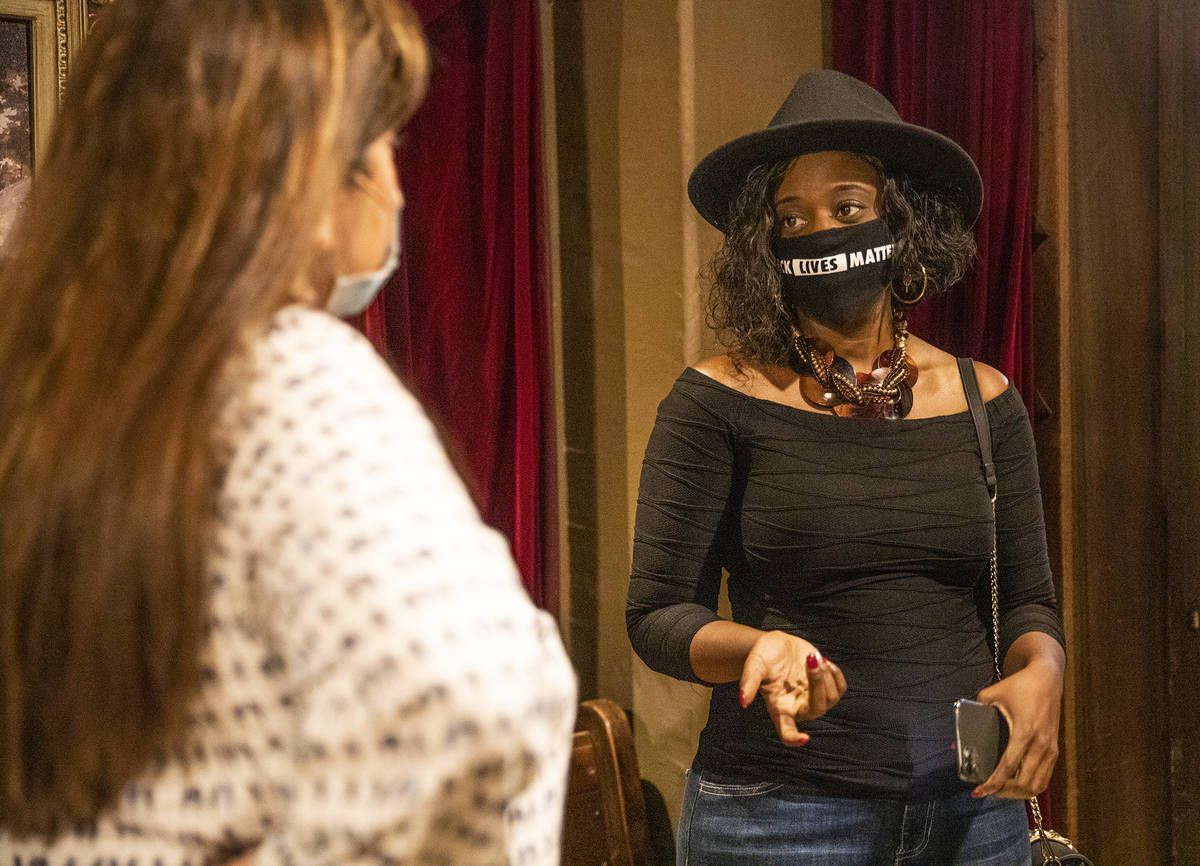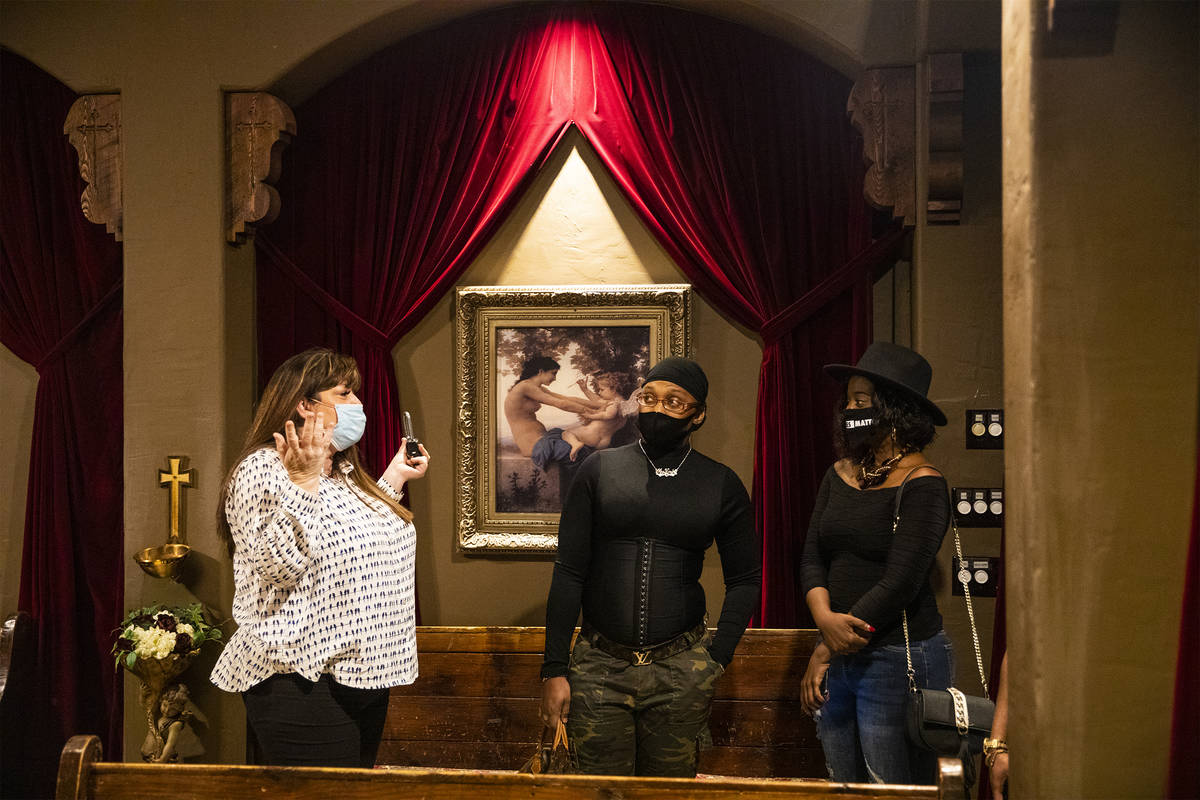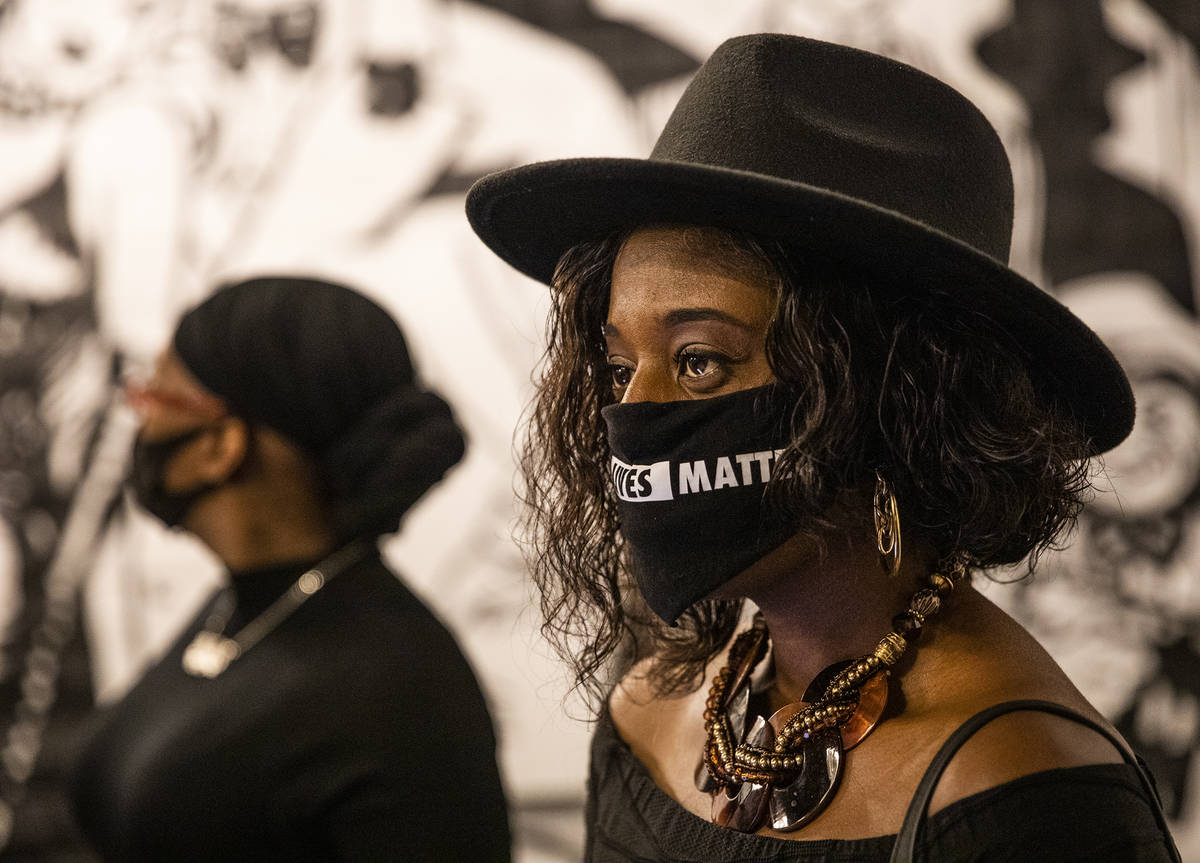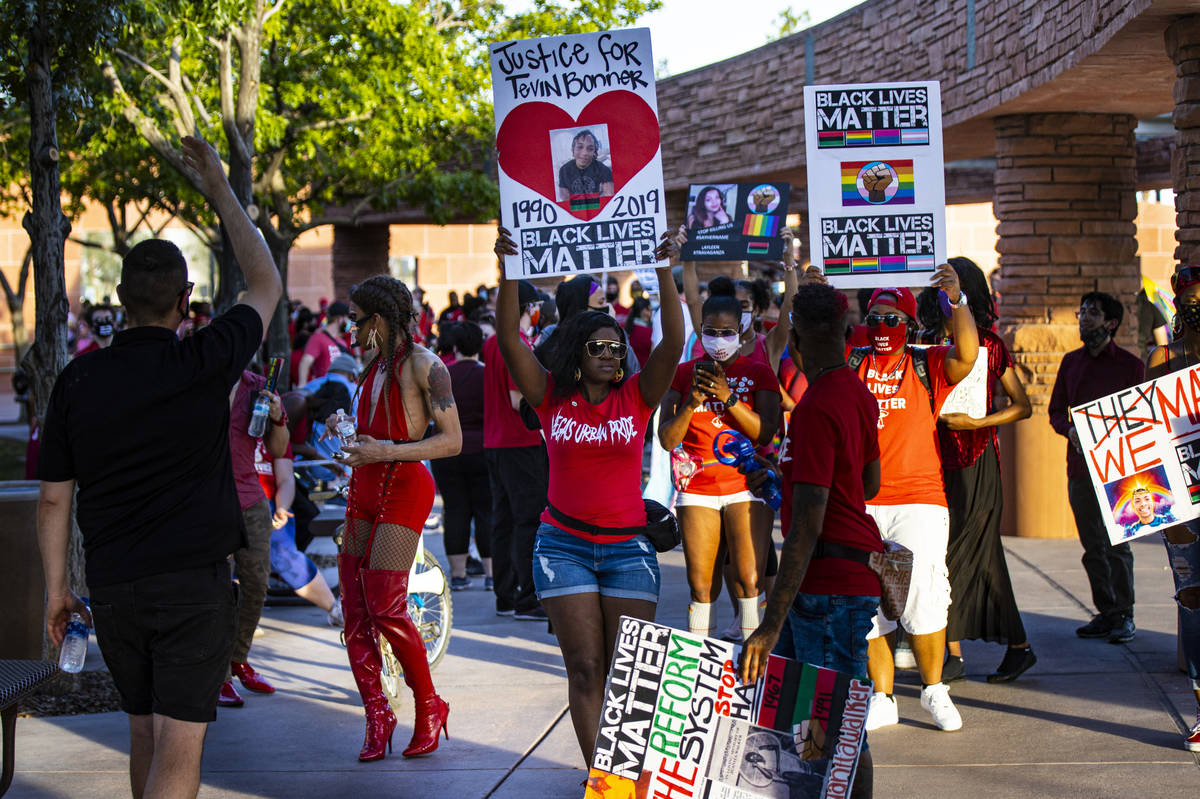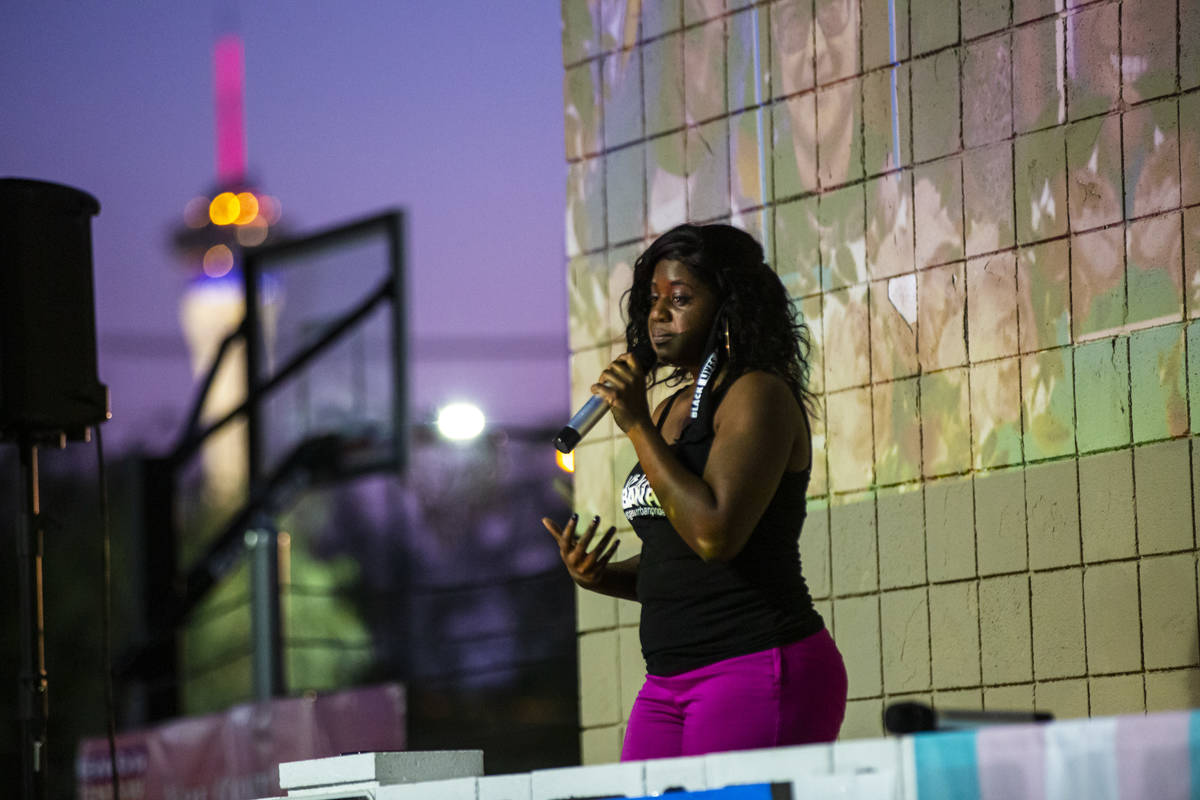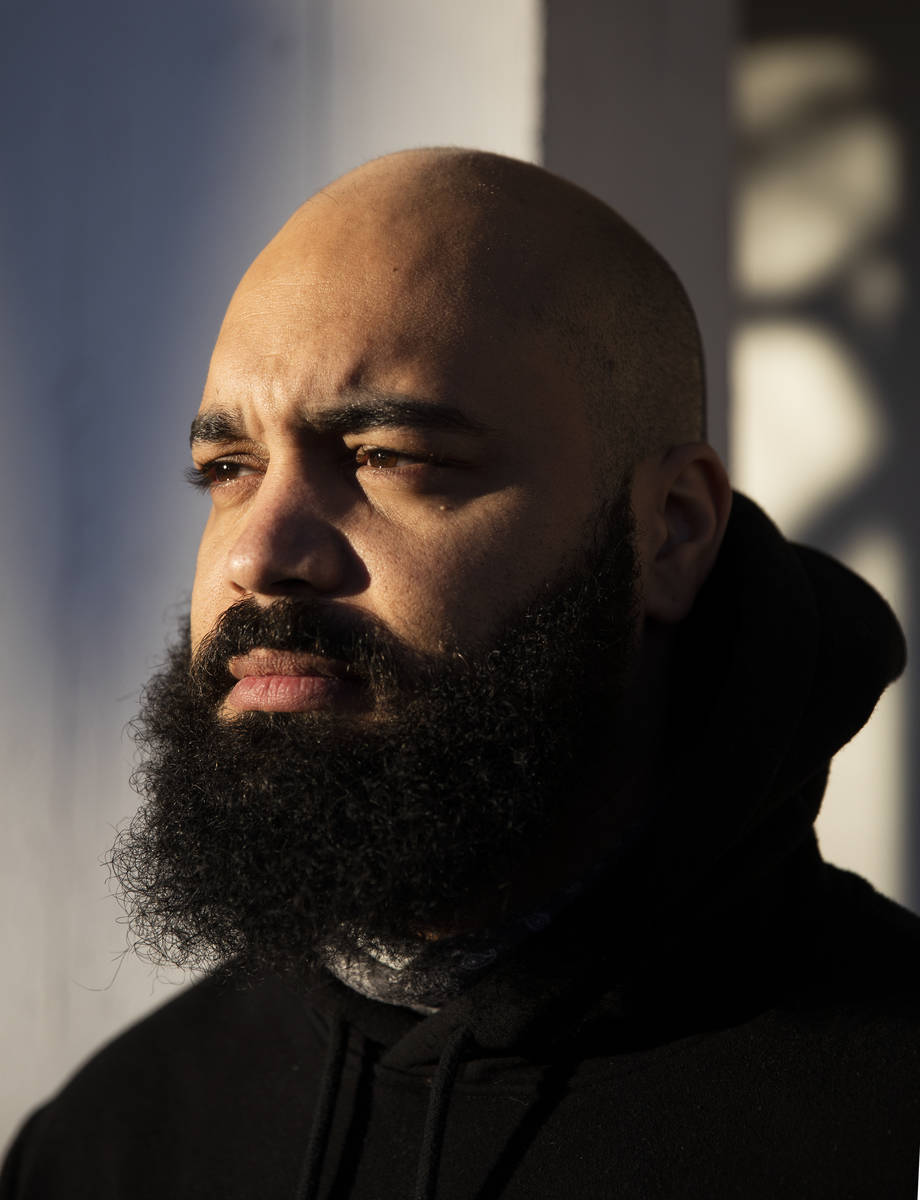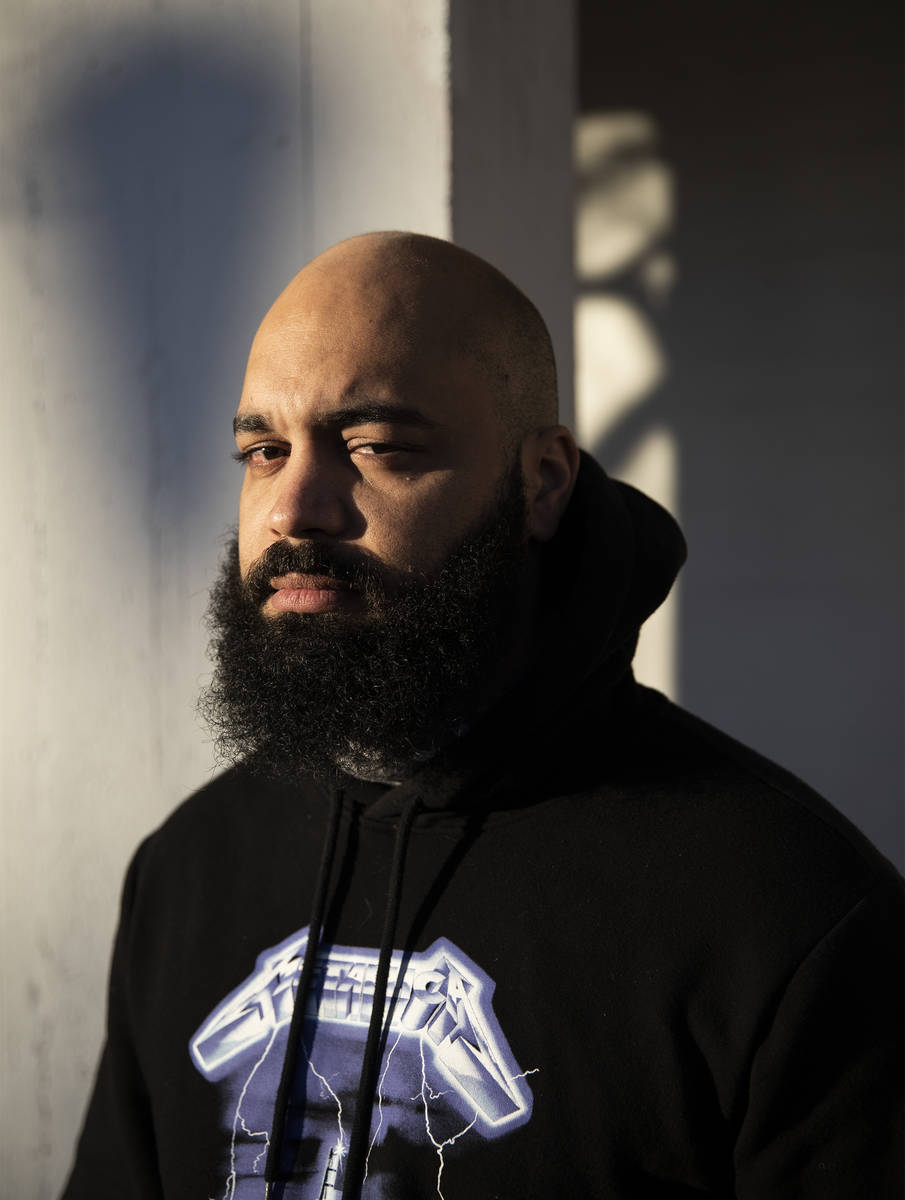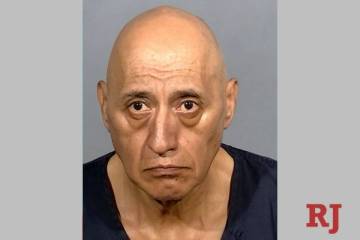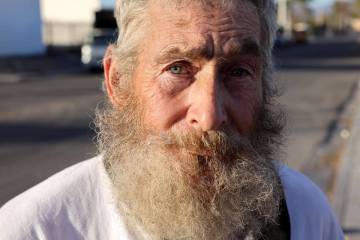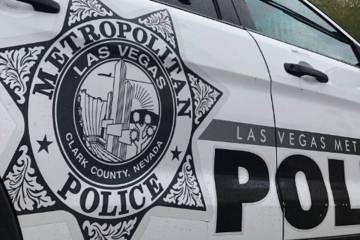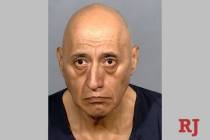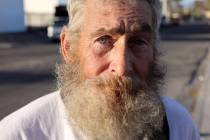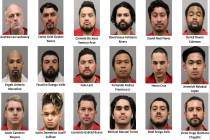Hate crimes against Black residents rose at alarming rate in 2020
Reported hate crimes against Black residents in Las Vegas more than doubled in 2020, which activists attribute to a rise in racism nationally and more knowledge among victims about their rights to report.
Of the 49 victims of hate crimes reported last year to Las Vegas police, 34 were targeted based on race, and 21 of those victims were Black, according to data from the Metropolitan Police Department.
Roxann McCoy, president of the NAACP’s Las Vegas chapter, said there has been an all-around rise in racism, in part because of the rhetoric of former President Donald Trump and the Black Lives Matter demonstrations. She recalled threats of violence the NAACP office received prior to the November election and said people told her that Black residents “should just be put in our place.”
“I can say personally, yes, I say that racism has raised its head, but made it a little bolder than before,” she said.
Nationally, 48 percent of all 4,930 hate crime victims reported to the FBI in 2019 were Black, making up the largest classification of victims. The data was provided by nearly 16,000 police departments, including North Las Vegas, Las Vegas, Henderson and Clark County school police. FBI hate crime data from 2020 is not yet available.
McCoy said she fears that many Black residents aren’t familiar with the reporting process. The NAACP works with Metro on instituting new policies to ensure fair policing, but McCoy encouraged residents to be more active in the Black community by volunteering and organizing, instead of relying on local programs to push for equality and report hate crimes on their behalf.
“It’s all of our responsibilities collectively,” she said. “We want to complain about a problem? What are we doing about it? Don’t sit on the sidelines and complain; volunteer and help us out.”
Metro Capt. Yasenia Yatomi said there were 16 hate crime cases reported last year, resulting in 21 victims, compared with nine cases, each with one victim, the year before.
“That’s part of us taking it seriously,” she said. “We consider everyone associated in the event who may have been affected.”
Seeking other avenues
Nicole Williams, a member of the Las Vegas chapter of the National Action Network, a nonprofit civil rights group, said derogatory and racist rhetoric is more present now, but residents are reporting more instances of hate because they want to hold the perpetrators responsible.
“We are more aware, and we’re taking action when things have happened, and we’re calling them out on it,” she said. “We have leaders in the community that are stepping forward in order to be the voice for those individuals and residents that have experienced some type of discrimination or prejudice.”
Among the cases reported to Metro last year, one person had three sides of their car keyed and a racial slur engraved on the hood; one was hospitalized after a man ran her over several times with his cart in a grocery store line; and one woman was followed in her car by a man who threw water, yelled racial slurs and made gorilla noises toward her at stoplights.
“People should not be hesitant to report a crime,” Yatomi said. “We spend a lot of time trying to improve community relationships, fill community gaps. We take all crimes seriously and investigate to the best of our ability.”
Local activist and political podcaster Joseph Bryant said many residents report hate crimes using social media or by reaching out to local groups, such as National Action Network, or to the Rev. Vance “Stretch” Sanders of New Era Church. Bryant said that when residents report a racist encounter at a business, Sanders has been known to enter the business and speak to customers, boycott in the parking lot and demand better practices through organizing protests.
“We organize around them,” Bryant said. “We have different avenues and different networks that we connect with to provide different services to our community in these situations. … People want results, and they don’t seem to get it from the police.”
Among the local hate crimes with anti-Black sentiments reported in 2020, nine cases remained open investigations as of Thursday. Although a person of interest had been identified in three cases, none of the reports had resulted in arrests.
Jack McDevitt, a Northeastern University professor and director of the school’s Institute on Race and Justice, has studied hate crimes for more than 30 years and co-written three books on how hate crimes have affected the nation. He said that in the 1990s, many police departments believed hate crimes weren’t a real crime for them to investigate, and he’s relieved that many forces have since undergone extensive training in the subject, but many Americans are still worried officers won’t take their report seriously.
“Underreporting is a significant problem, and it has a lot to do with a relationship with the police department and members of the targeted community, whether the community members feel anything can be done by police,” he said. “It’s going to call for maybe a more concerted response from law enforcement.”
Transgender residents in hiding
McDevitt said that along with Black residents, the transgender community is one of the most targeted communities nationally, and he warned that perpetrators of hate crimes tend to target everyone who is different from them, not just a specific group.
“If they can drive the African American family out of the neighborhood, it doesn’t mean they’re going to embrace the gay couple that moves in,” he said. “They’re empowered to go after anybody they perceive as different.”
Williams serves as the local LGBTQIA chair for the New York-based action network, working with LGBTQ and Black residents and reporting to a national board on issues facing residents. Nationally, she said, a record 33 transgender people were killed in 2020.
She said that while none of the victims was from Las Vegas, transgender locals have gone into “hiding,” avoiding buses, coffee shops or public settings.
“They’re not going anywhere that they don’t feel like they’re welcome to avoid that type of confrontation so they’re not a case that ends up being somewhere where they are hurt or tortured or murdered,” she said. “They stay together in fellowship, but they don’t feel like they have free reign to go somewhere and be comfortable.”
Seven transgender people were the victims of a hate crime in Las Vegas last year, according to Metro data, but Williams said many residents remain wary of calling the police in any situation.
Contact Sabrina Schnur at sschnur@reviewjournal.com or 702-383-0278. Follow @sabrina_schnur on Twitter.



